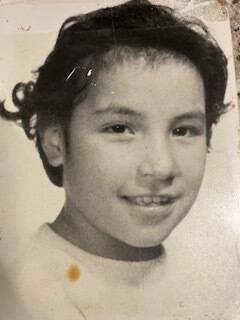Patricia Turner was a visionary business leader and one of the first female chiefs in Manitoba, a role she took on at the age of 28.
She founded the Aboriginal Chamber of Commerce in Winnipeg and, along with her family, created a number of successful companies in northern Manitoba.
Ruth Bonneville/Free Press file Pat Turner, President of E.T. Development was nominated for Excellence in Aboriginal Business Leadership from Asper Business School.
Turner was born on Misipawistik Cree Nation in 1954. She came from a long line of hereditary chiefs and her strength had great impact on her family, community and other First Nations within Manitoba. The mother, grandmother and great-grandmother died on May 29 at the age of 70.
At four-years-old, Turner (nee McNabb) was flown to the Birtle Indian Residential School, where she spent a few years before being transferred to the Dauphin Residential School. After a decade in that system she returned home and met the siblings she’d never gotten a chance to know.
Soon afterwards, she met the love of her life, Herman, and, at 15 years old, married and gave birth to her first son. A year later, a second son was born, and then her daughter the year following. Even as a teenage mother, Turner managed to obtain a high school diploma. The couple was happily married for 54 years.
Supplied

Pat Turner’s school photo
Edith, Turner’s youngest daughter, is a retired Winnipeg Police Service officer whose extensive police work included being a part of the force’s dive team and undercover operations.
“She was a strong woman,” she said. “She survived residential school. Growing up, my mom was always busy. She was a tough woman. She had high expectations of her children and she wouldn’t accept anything less. I don’t know if that came from residential school, the intergenerational effects … growing up, we didn’t know.
Turner supported her daughter’s decision to be a police officer. When Edith was assigned to the WPS Aboriginal liaison unit, her mom did a presentation for the police cadets about her residential school experience.
“I wouldn’t be the person I am today if it wasn’t for my mother,” Edith said.
Supplied
Pat Turner (left) with her daughter Edith, a police officer with the Winnipeg Police Service

Michael Hutchinson, a family friend and colleague, worked with Turner when he was communications director of the Assembly of Manitoba Chiefs.
“There are some people who can go through their whole life without impacting their community or the society around them. That wasn’t Pat Turner,” Hutchinson said. “Even as a teenager in Grand Rapids, I knew that Pat and her husband were building something, providing jobs and bringing money into the community.”
While studying business administration and aboriginal studies at the University of Manitoba, Turner was employed by Misipawistik Cree Nation as band administrator and later became its chief.
After a term, she sought out more efficient ways to help the community. She became the executive director and grand chief of the Manitoba Keewatinowi Okimakanak, eventually moving on to work for the federal government in such departments as Indian Affairs and Employment and Immigration. Ultimately, she realized economic development was directly related to the health of her First Nation community.
“The Indian Act system didn’t make main streets on First Nations for a reason. Canada wanted to assimilate First Nations, which meant preventing them from raising their own monies to support First Nation cultures, languages and community goals. Pat knew this and fought against it for her people,” Hutchinson said. “I hold Pat in such high regard. She was a mover and shaker who did much for the good of her First Nation and family. She will be missed.”
Firmly committed to playing a more active role in community development, Turner left federal government work after 12 years. She joined forces with her husband, a contractor, doing construction jobs in the Grand Rapids area, and, with one truck and loader, together they formed E.T. Trucking.
With Turner’s business savvy, their companies expanded, comprising Triple T Repair Service Inc., E.T. Contracting Inc., E.T. Development and Triple T Cabins.
As a successful entrepreneur and business leader, Turner served on premier Gary Doer’s Aboriginal Economic Development Advisory Committee and then helped form the Aboriginal Chamber of Commerce — the first of its kind in Canada — where she served as the organization’s first president. She was active on other boards, including the Manitoba Heavy Construction Association and University College of the North.

Supplied
Turner with former chief Ovide Mercredi at the Business Awards Gala in 2009.
Turner received several Indigenous business awards and was the recipient of the Aboriginal Business Leadership Award from the Asper School of Business.
In 2004, the Province of Manitoba and the Assembly of Manitoba Chiefs unanimously elected Turner chairperson of the board for the First Peoples Economic Development Growth Fund, a lending institution for First Nations businesspeople in Manitoba. There, she appreciated mentoring younger First Nation entrepreneurs and helping them reach their goals.
Ian Cramer, former CEO and longtime business colleague, remembers meeting Turner in the mid-1980s and being impressed by her work ethic and her commitment to improving life for First Nations people in Manitoba.
“She was 100 per cent dedicated to whatever she was doing,” Cramer said. “Whether it was business or working with the community, helping create jobs and training for youth, she realized very early on that business and jobs and meaningful work were important to the development of the people that she worked with. She was so very dedicated in that regard.”
Ken Gigliotti / Free Press file
Oct 18 2005 – Aboriginal Chamber of Commerce opens. In pic left to right: Daniel Paul Bork, Chamber president Pat Turner and MLA Jim Rondeau, share laugh at the opening of the downtown office.
Describing Turner as someone whose level of respect was achieved by a no-nonsense approach and by never beating around the bush, Cramer said, “This is why we are talking about her today. She was a special leader, she didn’t shy away from taking risks and putting herself on the line. She was always forward-looking. She was just someone that you couldn’t help but look up to.”
Turner’s daughter continues to see the far-reaching impact of her mother’s work and life of dedication, as someone who didn’t give up on anything.
“She was determined, and she persevered,” Edith said. “These past weeks, so many members of the community reached out to us to send condolences. People stopped by the house to give us fish. It’s unbelievable the amount of support we’ve received, how many people’s lives she reached.”


